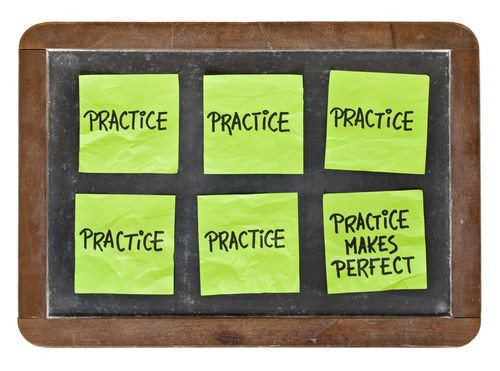Practice Makes Perfect? Maybe, But Other Factors Like Support And Confidence Help, Too

Many of us have heard the expression “practice makes perfect,” from a coach, music teacher, or math teacher, but a new finding reveals it takes more than practice to excel.
Case Western University’s new assistant professor of psychology Brooke N. Macnamara and her colleagues have overturned a 20-year-old theory stating that those who excel in their fields are those with the most hours of practice. The theory came about in 1993 from studies by K. Anders Ericsson, a Swedish psychologist. Ericsson and his colleagues proposed the idea that difference in hours of lifetime practice attributed to the differences in expertise. To conclude this, violin students were asked to estimate their lifetime practice. The “best” students had an average of 10,000 hours of practice, which was higher than the average number of practice hours of less-skilled students.
While Macnamara was a doctoral student at Princeton University she conducted her study’s research and explored how people acquire skills and become experts at what they do. Macnamara and her colleagues found that practice explained only 12 percent in mastering skills in various fields. The importance of practice varied greatly by field: 26 percent for games, 21 percent for music, 18 percent for sports, four percent for education and less than one percent for other professions.
If practice isn’t the leading factor in expertise, then what is? “Don’t get me wrong. Practice is important,” Macnamara told The Daily, Case Western University’s newspaper, “It’s just not as important as many have thought. What does account for the skills is still unknown.”
The conclusion of the study was based on a review of 9,331 research papers about practice relating to acquiring skills. Macnamara and her colleagues focused specifically on 88 papers that collected and recorded data about practice times. Next, Macnamara plans to find out what factors contribute to expertise in specific fields. She wants to investigate factors such as confidence, positive or negative feedback, and self-motivation.
“A great practice musician could freeze up in front of an audience, yet someone less skilled, but with more confidence could shine, so practice isn’t the whole story,” Macnamara told The Daily.



























